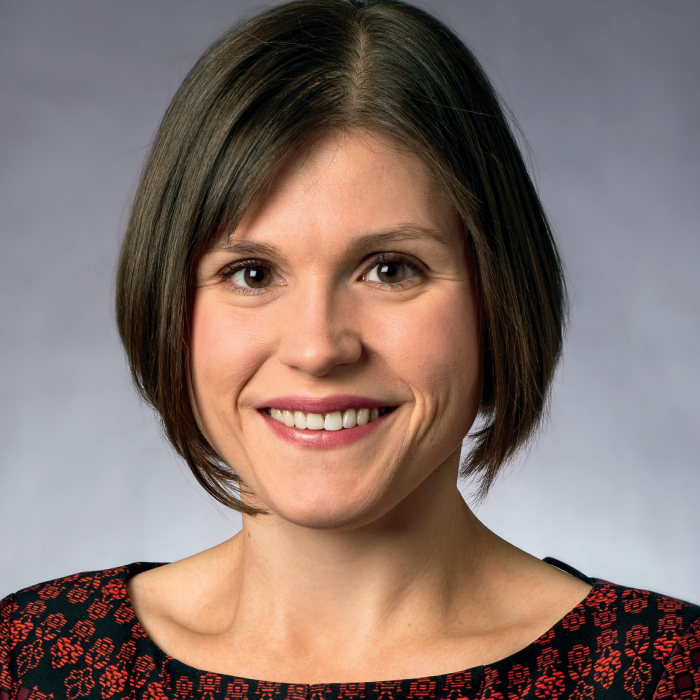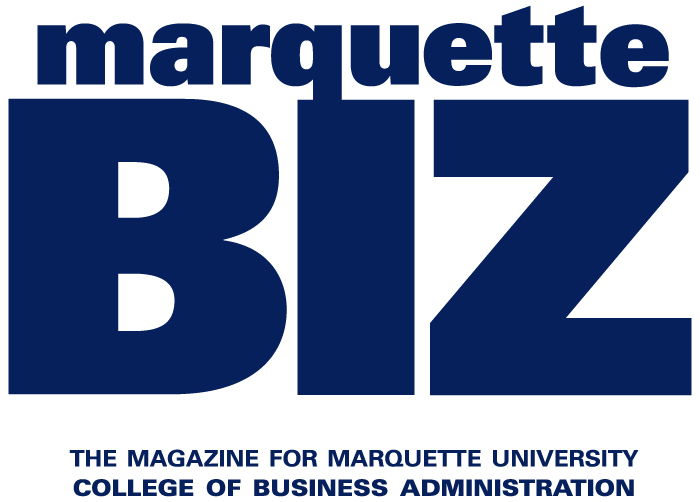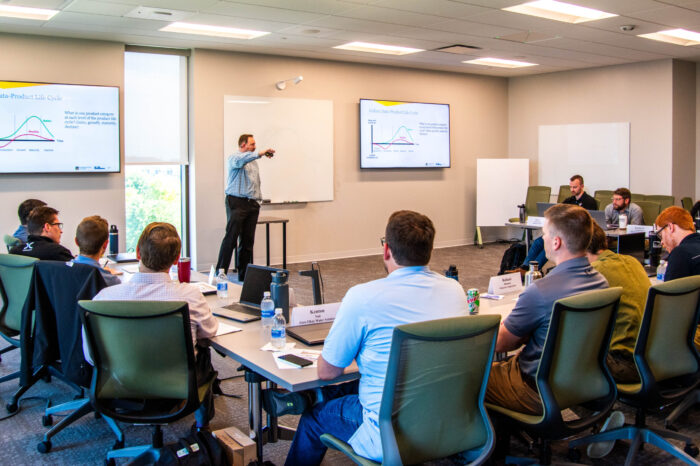Professor investigates accessibility and economic outcomes of paid caregiver leaves.

By Sarah Koziol, Arts ’92
Historically the U.S. has been less generous with paid leave benefits compared with similar countries, according to Dr. Kathryn Wagner, associate professor of economics. However, the COVID-19 pandemic has brought increasing awareness to their importance.
Wagner has been pursuing paid leave research that reveals caregivers who live in states that mandate paid caregiver leaves are less likely to reduce their work hours after a family member experiences a health shock. But what she and her co-investigators don’t know yet — but hope to learn — is who has access to paid family leave outside of those states.
Her current research team, funded by the Washington Center for Equitable Growth, is using machine-learning techniques to filter through what limited sources are available on employer-provided paid leaves. Then Wagner will use the data to evaluate how people’s financial security and employment are affected by the likelihood of paid leave access following a qualifying health event and to interpret what this means for paid leave policies overall.

“Paid leave is a relatively under-researched topic because we generally have not had data that allows us to measure its impacts,” Wagner says. “Using restricted-level data that is often inaccessible and limited to estimate models will allow us to examine paid leave in more robust survey populations.”
As several states have adopted or are considering mandates that require employers to offer paid leave to their employees, Wagner appreciates the magnitude of this project.
“By understanding any potential benefits and costs from paid leave, our work can demonstrate the impact it could have, which could be especially relevant for vulnerable populations that are more likely to need the support,” Wagner says.




